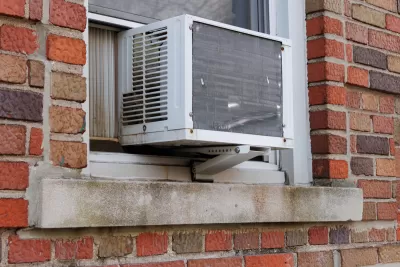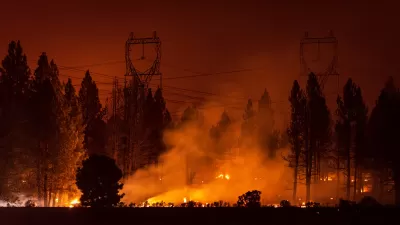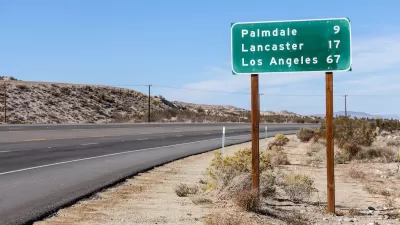Extreme heat, poor housing quality, and the heat island effect make it harder for many households to afford energy bills.

According to a brief by Ysabelle Kempe in Smart Cities Dive, “A Brookings Metro report published Sept. 6 highlights that Black renters disproportionately experience energy insecurity, which stems from an inability to pay energy bills.” The findings reveal how climate change amplifies insecurities, pushing low-income renters already struggling to afford bills over the edge.
“The researchers’ analysis of 2020 data found that 59% of Black renters faced energy insecurity compared with 36% of White renters,” Kempe adds. “Furthermore, neighborhoods with more Black residents often face more intense heat island effects than other areas.”
The disparity extends to homeowners: “The report also found that 44% of Black homeowners faced energy insecurity in 2020, compared with 18% of White homeowners.”
According to Brookings Metro senior research associate Manann Donoghoe, “the first step cities can take involves considering how the history of racially biased policies has shaped where people live and their housing quality. Once local governments reckon with that knowledge, they should consider and implement policies that address the gaps for vulnerable neighborhoods, which will start with targeting, in many cases, Black-majority or minority-majority neighborhoods, he said.”
FULL STORY: Extreme heat disproportionately threatens Black renters, experts say

Alabama: Trump Terminates Settlements for Black Communities Harmed By Raw Sewage
Trump deemed the landmark civil rights agreement “illegal DEI and environmental justice policy.”

Planetizen Federal Action Tracker
A weekly monitor of how Trump’s orders and actions are impacting planners and planning in America.

Why Should We Subsidize Public Transportation?
Many public transit agencies face financial stress due to rising costs, declining fare revenue, and declining subsidies. Transit advocates must provide a strong business case for increasing public transit funding.

Understanding Road Diets
An explainer from Momentum highlights the advantages of reducing vehicle lanes in favor of more bike, transit, and pedestrian infrastructure.

New California Law Regulates Warehouse Pollution
A new law tightens building and emissions regulations for large distribution warehouses to mitigate air pollution and traffic in surrounding communities.

Phoenix Announces Opening Date for Light Rail Extension
The South Central extension will connect South Phoenix to downtown and other major hubs starting on June 7.
Urban Design for Planners 1: Software Tools
This six-course series explores essential urban design concepts using open source software and equips planners with the tools they need to participate fully in the urban design process.
Planning for Universal Design
Learn the tools for implementing Universal Design in planning regulations.
Caltrans
Smith Gee Studio
Institute for Housing and Urban Development Studies (IHS)
City of Grandview
Harvard GSD Executive Education
Toledo-Lucas County Plan Commissions
Salt Lake City
NYU Wagner Graduate School of Public Service





























